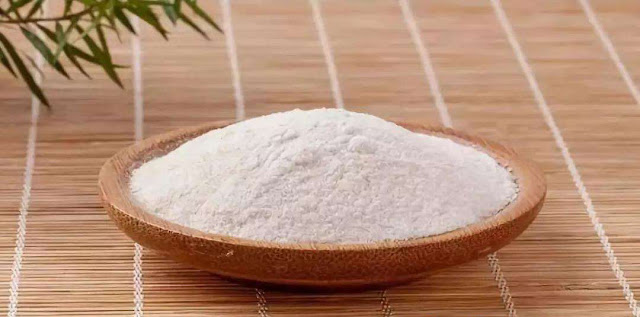The Role of Maltodextrin in Sports Nutrition and Energy Drinks
Maltodextrin plays a significant
role in sports nutrition and energy drinks due to its unique properties as a
carbohydrate source. As a complex carbohydrate derived from starch,
maltodextrin provides a quick and easily digestible source of energy, making it
an ideal ingredient for athletes and individuals engaged in high-intensity
physical activities.
One of the primary benefits of
maltodextrin in sports nutrition is its ability to rapidly replenish glycogen
stores in the muscles. During exercise, glycogen, which serves as the primary
fuel source for muscles, gets depleted. Consuming maltodextrin-rich products
post-workout helps restore glycogen levels quickly, facilitating muscle
recovery and promoting better performance in subsequent sessions.
The global
maltodextrin market is estimated to be valued at US$ 3,571.9 million in 2021 and is expected to exhibit a CAGR of 5.1 % over the forecast period
(2021-2028).
Maltodextrin's high glycemic
index (GI) also plays a role in sports nutrition. The high GI indicates that
maltodextrin is rapidly digested and absorbed, leading to a swift increase in
blood glucose levels. This spike in blood sugar provides an immediate source of
energy during workouts, helping to sustain performance and delay fatigue.
Additionally, maltodextrin's
neutral taste and excellent solubility make it a popular choice for formulating
energy drinks and sports supplements. Maltodextrin can be easily mixed with
water or other liquids, allowing athletes to consume it conveniently before,
during, or after exercise. It serves as an effective carbohydrate source in
energy drinks, providing a quick energy boost without causing gastrointestinal
distress.
Moreover, maltodextrin's
versatility in sports nutrition extends beyond its role as a carbohydrate
source. It can also be used as a bulking agent or texturizer in protein powders
and sports bars, enhancing their texture and aiding in their palatability.
It is important to note that
individual nutritional needs may vary, and maltodextrin may not be suitable for
everyone. Athletes with specific dietary requirements or those following
specialized training programs should consult with a sports nutritionist or
healthcare professional to determine the optimal use of maltodextrin in their
diet.
While maltodextrin
offers numerous benefits in sports nutrition, it is essential to consider the
overall macronutrient composition of one's diet. Balancing carbohydrate intake
with protein and healthy fats is crucial for maintaining optimal performance
and supporting overall health and well-being.
Furthermore, it is worth
mentioning that individuals with certain health conditions, such as diabetes or
insulin resistance, should be cautious with their maltodextrin consumption due
to its impact on blood sugar levels. Consulting with a healthcare professional
or registered dietitian can provide personalized guidance in such cases.
Maltodextrin plays a vital role
in sports nutrition and energy drinks as a readily available and easily
digestible carbohydrate source. Its ability to replenish glycogen stores,
provide quick energy, and enhance the texture of sports supplements makes it a
popular choice among athletes and fitness enthusiasts. However, it is important
to consider individual needs and goals when incorporating maltodextrin into
one's diet, and professional guidance is recommended for optimizing its use in
sports nutrition.




Comments
Post a Comment